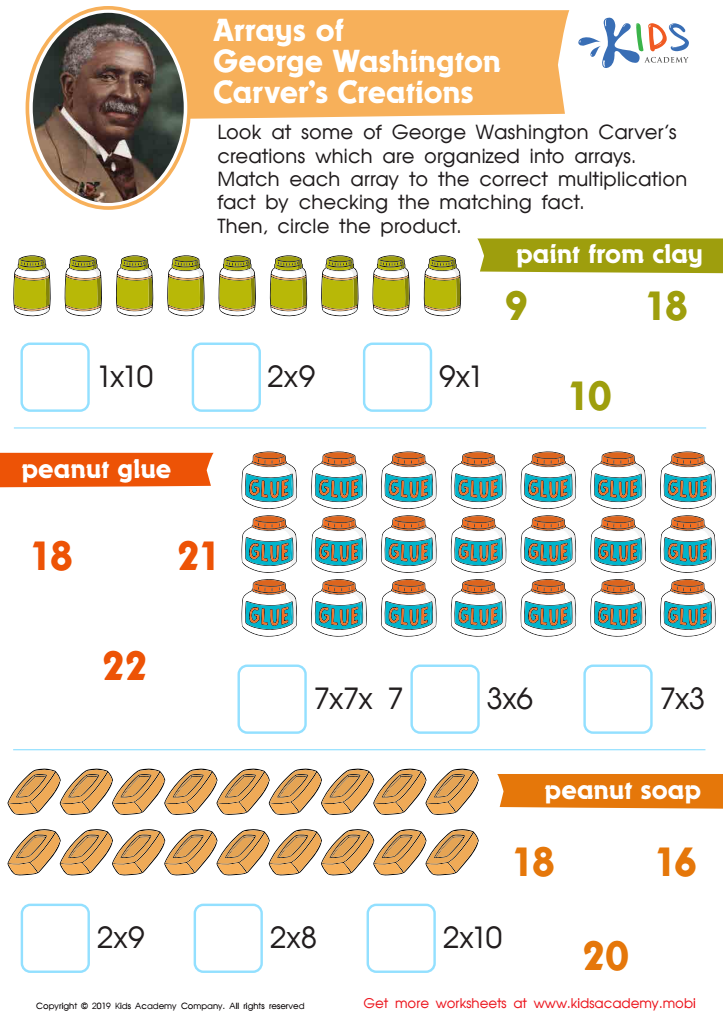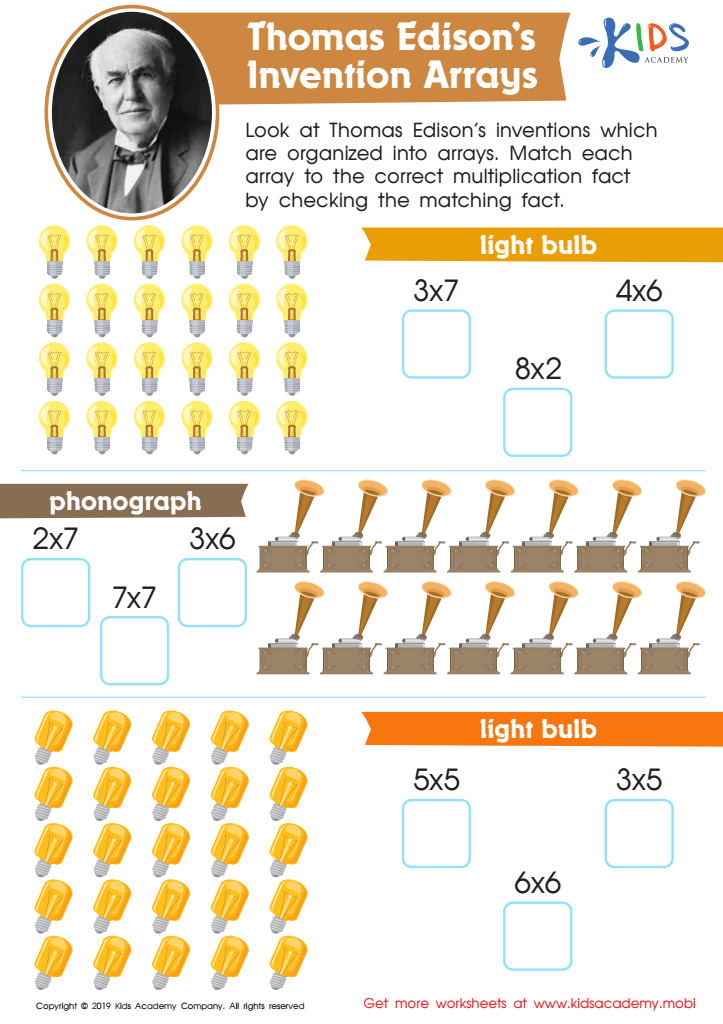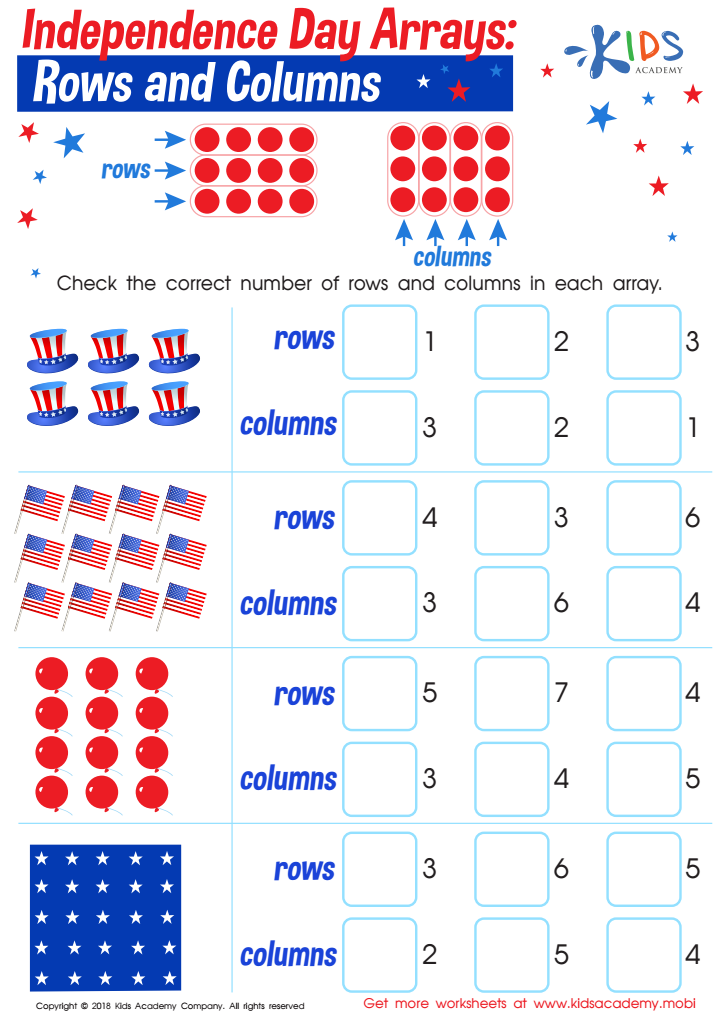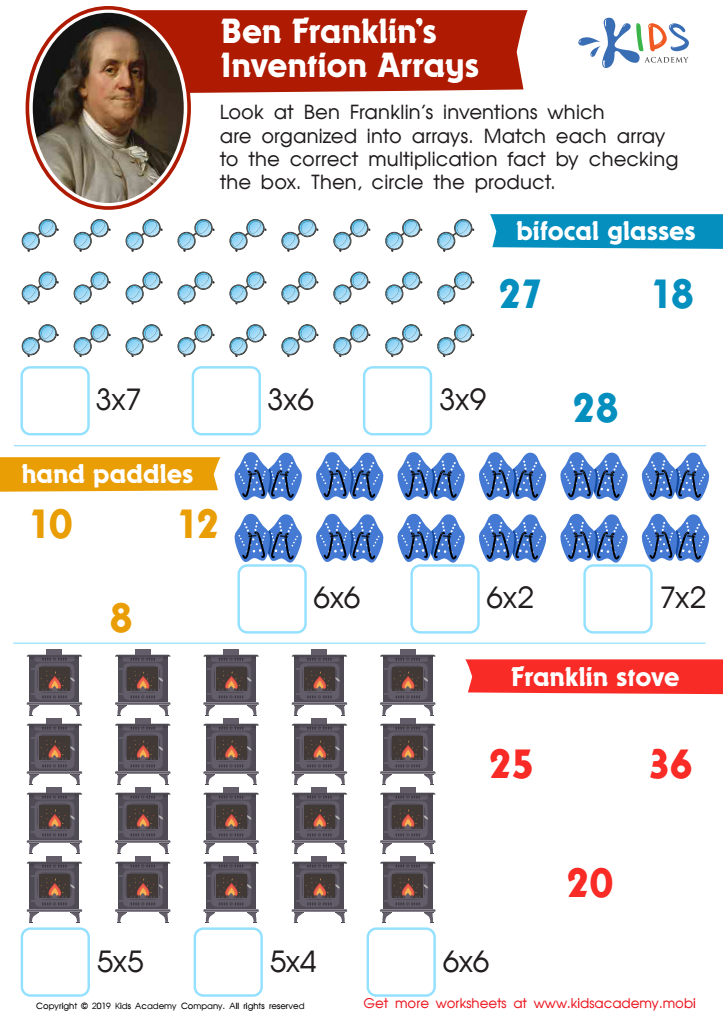Historical Knowledge Arrays Worksheets for Ages 7-8
4 filtered results
-
From - To
Explore our engaging Historical Knowledge Arrays Worksheets designed for ages 7-8, where young learners will connect math and history in a fun way! These interactive worksheets help children develop essential arithmetic skills through diverse historical contexts, fostering a deeper understanding of both disciplines. Each worksheet challenges students to create and interpret arrays, enhancing their math proficiency while sparking curiosity about historical events and figures. Perfect for teachers and parents, our resources provide a seamless blend of education and enjoyment, making learning an exciting adventure. Start building your child's mathematical and historical knowledge today!


Arrays of George Washington Carver’s Creations Worksheet


Thomas Edison’s Invention Arrays Worksheet


Independence Day Arrays: Rows and Columns Worksheet


Ben Franklin’s Invention Arrays Worksheet
Historical Knowledge Arrays for ages 7-8 are essential tools for parents and teachers as they systematically organize key historical concepts and events in a way that is developmentally appropriate for young learners. At this age, children begin to develop critical thinking and comprehension skills, making it an opportune time to introduce foundational historical knowledge.
Understanding history allows children to connect their own lives with broader societal contexts. By engaging with historical narratives, children learn about diverse cultures, significant figures, and pivotal moments that shape the world. Historical Knowledge Arrays present these concepts in a visually engaging format, making it easier for young students to grasp complex ideas and relationships.
Furthermore, these arrays promote inquiry-based learning, encouraging students to ask questions, draw conclusions, and become active participants in their educational journey. Parents and teachers who prioritize historical knowledge foster a sense of curiosity and empathy in children, enabling them to recognize the value of different perspectives.
Ultimately, equipping students with historical knowledge enhances their literacy skills, enables informed citizenship, and helps them develop a clearer identity in a multicultural society. It empowers them to understand not just where they've come from, but also where they might want to go in the future.
 Assign to My Students
Assign to My Students
















